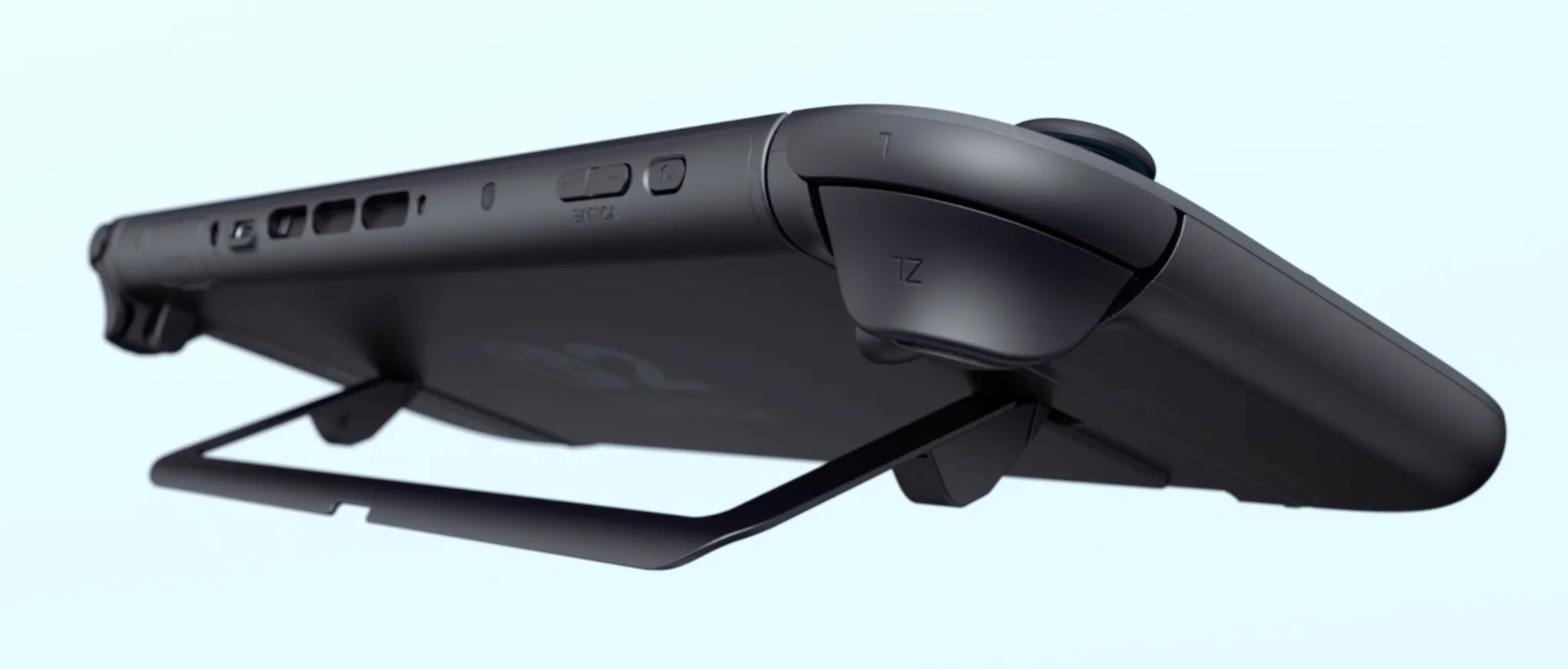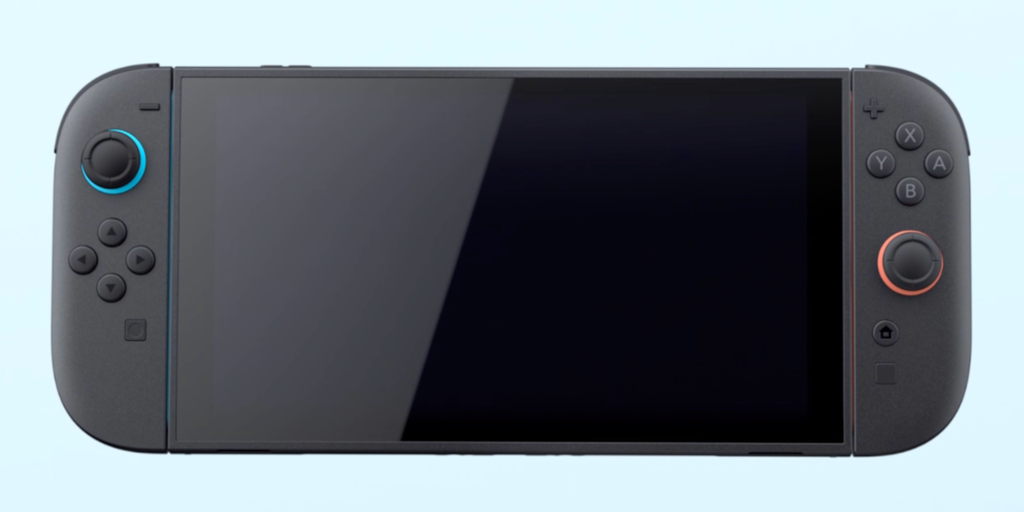The handheld market is a wildly different place from when the Nintendo Switch launched as the successor to both the Wii U and 3DS—though the Switch is still the king with over 140 million units sold since March 2017.
We recently got our first look at the Nintendo Switch 2, and the full reveal is just days away on April 2. While it’s quite similar to the original Switch, there’s one thing we can say: It’s definitely bigger. But a game system can only get so big before it stops being portable, and the Switch 2 has us wondering: Could it be too big?
Since the Switch debuted, the handheld market has exploded and multiplied. At the top end are portable PC devices like the Steam Deck and ASUS ROG Ally X, while the rest of the market has an ever-growing number of options like the Retroid Pocket 5 and the Ambernic RG35XXSP.
The bigger handhelds offer something closer to a 1:1 experience to the Nintendo Switch, albeit with access to a massive array of PC games. The smaller handhelds, which focus on retro emulation, have a variety of prices, sizes, and form factors—so if one model looks too big or awkward to hold, then you can almost certainly find a quality alternative.
Systems like the Steam Deck and its brethren have screens ranging from 7 to 9 inches—that’s ignoring Acer’s comically oversized 11-inch Nitro Blaze 11—and weigh anywhere from 670 to almost 900 grams. For comparison, the ‘biggest’ Switch is the Nintendo Switch OLED edition, which has a 7-inch screen and weighs 420 grams with the controllers attached. The semi-portable Wii U tablet weighs 491 grams.
Nintendo Switch 2. Image: Nintendo
Let’s focus for a moment on Valve’s Steam Deck, the most popular PC handheld and the closest thing the Switch has to a challenger. The deck weighs in at 673g with a 7-inch screen. If you dig around online, it’s not hard to find plenty of comments about the Steam Deck being too heavy and much too big to be portable; there’s even a market for lap pillows specifically for handhelds.
Even the default Nintendo Switch borders on being too large to be portable for many people, especially once you take into account the need for some players to affix a case to protect the screen and those sensitive Joy-Con sticks and rails.
Nintendo is keeping system specs on the Nintendo Switch 2 close to the vest ahead of its April 2 Nintendo Direct full reveal, but estimates have flooded out due to information leaks, details from accessory makers, and eagle-eyed observers combing through Nintendo’s reveal trailer.
What we can see in that trailer seems to suggest that the Nintendo Switch 2 has an approximately 8-inch screen and is roughly 30% larger than the original Switch, all told. We can’t really estimate the weight, though, since power increases aren’t necessarily going to scale linearly with weight.
But we’re left wondering: Is a bigger system really what Nintendo fans want?
Portability has always been a key aspect of Nintendo handhelds, from the Game & Watch units released in 1980, all the way up to the modern Nintendo Switch systems.
Ad campaigns for these systems show people playing them on trains, at hip rooftop parties attended by local youths, or in parks with children who are (for some reason) not screaming at each other. Even in home settings, recent ads often depict people playing the Switch not in docked mode on their televisions, but in full handheld mode.
It also seems to push against the kid-centric focus that Nintendo systems tend to have. The Nintendo Switch placed a firm flag in the ground with how small the Joy-Cons were: this system is for tiny hands. I don’t know that the Switch 2 Joy-Cons are big enough to be a problem, but the extra size and weight are going to be that much more extreme to an eight-year-old compared to a 26-year-old’s perception.
 Nintendo Switch 2. Image: Nintendo
Nintendo Switch 2. Image: Nintendo
The Nintendo Switch 2 is going to be a big beefy boy, regardless of its exact measurements in millimeters and grams. It’s big even for a Nintendo handheld, given that it’s larger than the Switch and likely heavier than even the Wii U tablet.
It almost seems like Nintendo is chasing the upscale handheld market with this size increase, rather than its devoted core audience—a mistake it made and learned from with the GameCube. Nintendo doesn’t have to compete with Microsoft and Sony, so why should it? The same goes for trying to match these other handhelds in size and features.
Or maybe Nintendo is just worried that people won’t be able to see that it’s new if the system isn’t obviously bigger. Even all these years later, Nintendo still has to be stinging from the failure of the Wii U. As smartphones have proven, though, there’s an upper limit for what people are willing to carry around when it comes to electronics.
Bigger isn’t always better—at least not for everyone. None of this is to say that the impending Switch 2 isn’t incredibly exciting; it’s still Nintendo hardware, and Nintendo hardware is usually excellent (Switch stick drift aside).
Nintendo could make a very good case for the increased screen size, or the hardware could be slick enough that the bigger screen and extra heft don’t feel like an extra burden. And even so, it’s still going to play that new Mario Kart and whatever else Nintendo is cooking for the system’s launch later this year. We’ll know more once the Nintendo Direct drops on April 2.
Edited by Andrew Hayward
GG Newsletter
Get the latest web3 gaming news, hear directly from gaming studios and influencers covering the space, and receive power-ups from our partners.




